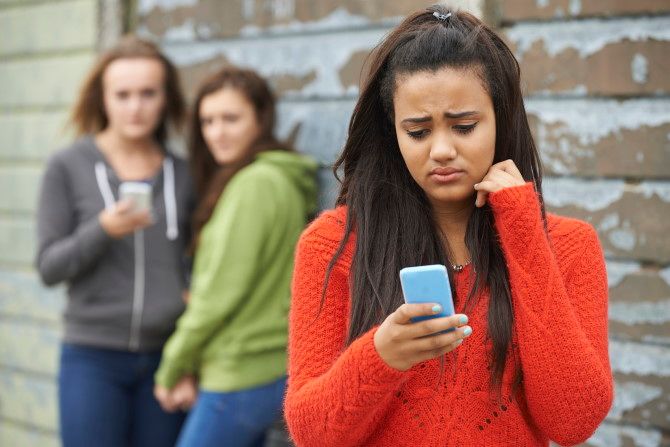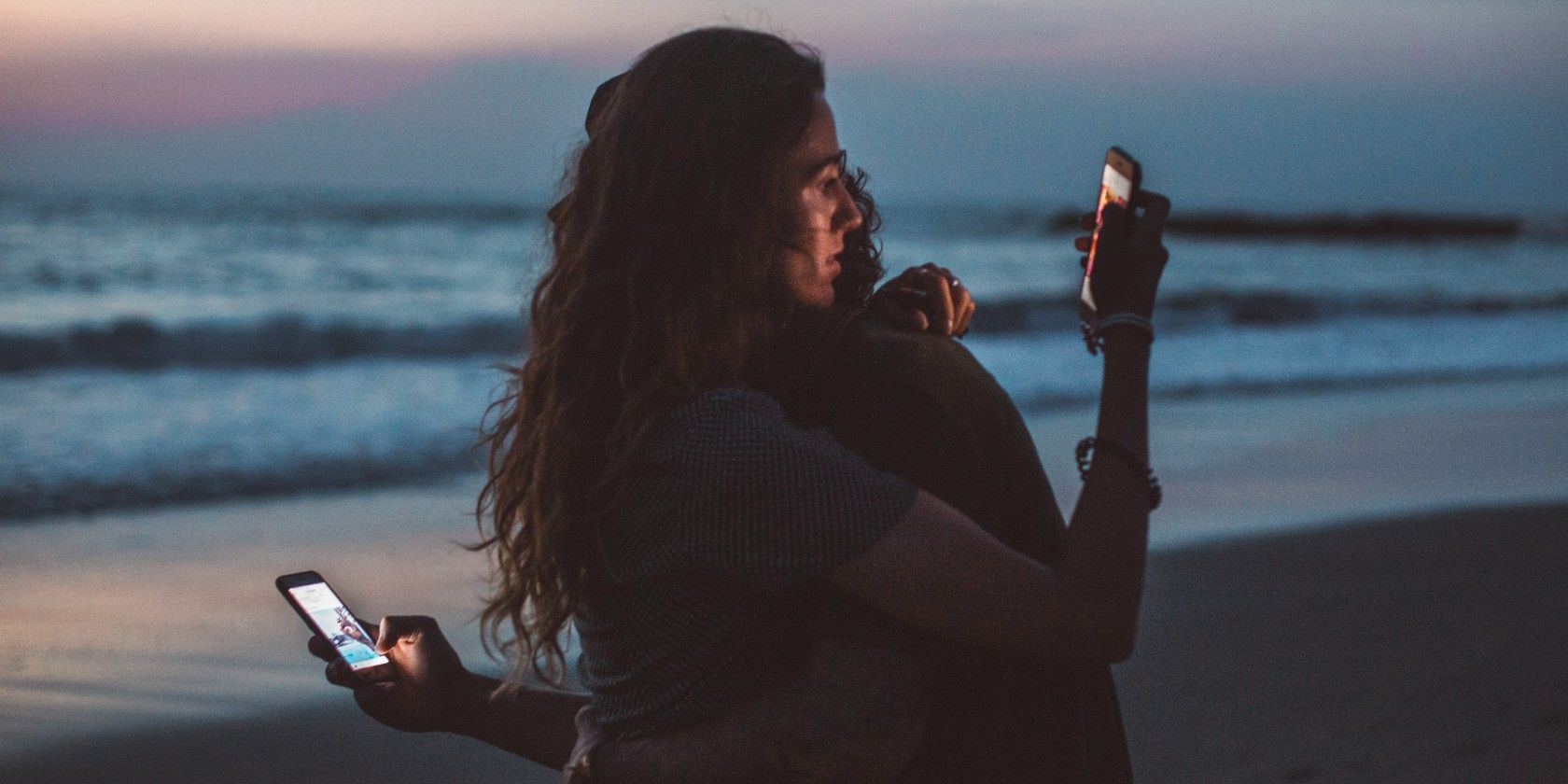
Invisible Influence: 7 Hidden Harmfulness of Networking Sites

Invisible Influence: 7 Hidden Harmfulness of Networking Sites
If you can’t imagine your life without social media, you’ve probably fallen victim to the strong power that social networking sites have over the public. Chances are that you’ve also experienced some of the negative effects social media has on people.
Unfortunately, the bad effects of social media are all too real for a lot of us. Let’s look at the negative impacts of social media on real people, so you can recognize these symptoms and get help if needed.
Disclaimer: This post includes affiliate links
If you click on a link and make a purchase, I may receive a commission at no extra cost to you.
How Social Media Is Bad for You
You might be surprised to learn that the negative effects of social media are both physical and mental. They can change your perception of the world and yourself. Whilesocial media does have some positive effects , and there are certainlypositive social media stories , it also has a lot in the drawback column.
Don’t believe this? Read on for a list of social media’s negative effects. If you recognize any of them as issues in your own life, it may be time to reduce your usage or even stop using social media altogether.
1. Depression and Anxiety
Do you spend several hours per day browsing through social media? Spending too long on social networking sites could adversely affect your mood. In fact, chronic social users are more likely to report poor mental health, including symptoms of anxiety and depression.
It doesn’t take much thinking to figure out why. Social media lets you see the carefully selected best parts of everyone else’s lives, which you then compare to the negatives in your own life (that only you see). Comparing yourself to other people is a sure path to anxiety and unhappiness, and social media has made this much easier to do.
So how do you use social media without causing yourself psychological distress? If you turn to the same research (and common sense), the recommended amount of time you should spend on social networks is around half an hour per day. As with many other potential ills in life, it’s all about moderation.
If youfind yourself upset after a social media session , also consider the networks you use and the people you follow. You’re much more likely to feel anxious after reading political arguments and doomsday news than you are after seeing fun updates from your favorite musicians or photos of your friends’ pets.
2. Cyberbullying

Image Credit: HighwayStarz/Depositphotos
Before social media, bullying was something that was only possible to do face-to-face. However, now people can bully others online—anonymously or not. Today everyone knowswhat cyberbullying is , and most of us have seen what it can do to a person.
While social media makes it easier to meet new people and make friends, it also enables cruel people to tear into others with little effort. Perpetrators of bullying can use the anonymity that (some) social networks provide to gain people’s trust and then terrorize them in front of their peers. For instance, they might create a fake profile and act friendly to a classmate, then later betray and embarrass them online.
These online attacks often leave deep mental scars and even drive people to hurt themselves or take their own lives, in some cases. And as it turns out, cyberbullying doesn’t just affect kids. Adults can become victims of online abuse, too. Since screens hide our faces, you can end up being a jerk on social media and other websites without even realizing it.
Learnhow to make your Instagram profile more private , and apply the same advice to other social networks, if you suffer from this issue.
3. FOMO (Fear of Missing Out)
Fear of Missing Out (FOMO) is a phenomenon that became prominent around the same time as the rise of social media. Unsurprisingly, it’s one of the most widespread negative effects of social media on society.
FOMO is just what it sounds like: a form of anxiety that you get when you’re scared of missing out on a positive experience that someone else is having. For example, you might constantly check your messages to see if anyone has invited you out, or focus on your Instagram feed all day to make sure that nobody is doing something cool without you. You may also see pictures of something fun that your friends were able to do, feeling left out that you couldn’t go because you had another responsibility.
This fear receives constant fuel from what you see on social media. With increased social network use, there’s a better chance for you to see that someone is having more fun than you are right now. That’s exactly what causes FOMO, so if you’re prone to this, knowhow to prevent FOMO when using social media (or cut back on using it altogether).
4. Unrealistic Expectations

Image Credit: prometeus/Depositphotos
As most people are probably aware, social media forms unrealistic expectations of life and friendships in our minds.
Most social media sites have a severe lack of online authenticity. People use Snapchat to share their exciting adventures, post about how much they love their significant other on Facebook, and load up their Instagram page with heavily staged photos.
But in reality, you have no way of knowing whether this is all a farce. While it looks great on the surface, that person could be in massive debt, on bad terms with their significant other, or desperate for Instagram likes as a form of validation.
One simple way out of this mess is for everyone to quit lying on social media. But in the era of Instagram influencers andYouTubers who earn millions from being inauthentic, that isn’t going to happen anytime soon.
Remember an important adage: you should not judge your everyday life against the highlights of someone else’s.
5. Negative Body Image
Speaking of Instagram celebrities, if you look at popular Instagram accounts, you’ll find unbelievably beautiful people wearing expensive clothes on their perfectly shaped bodies.
And to nobody’s surprise, body image is now an issue for almost everyone. Of course, seeing so many people who are supposedly perfect (according to society’s standards) on a daily basis makes you conscious of how different you look from those pictures. And not everyone comes to healthy conclusions in this situation.
It’s really important to remember that everybody is human. No one wakes up every day looking like a supermodel, and while many people have gone to great lengths to train their bodies, that’s not the case for everyone who looks fit. Many people, in search of social media fame, have definitely taken unhealthy routes to appear more attractive.
Surround yourself with people who love you for who you are, and you won’t have to stress about fake Instagram beauty.
6. Unhealthy Sleep Patterns
On top of increasing the cases of anxiety and depression, another bad thing about social media is that spending too much time on it can lead to poor sleep. Numerous studies have shown that increased use of social media has a negative effect on your sleep quality.
If you feel that your sleep patterns have become irregular, leading to a drop in productivity, try to cut down on the amount of time you browse social media.
This is especially the case when using your phone in bed at night. It’s all too easy to tell yourself that you’ll spend five minutes checking your Facebook notifications, only to realize an hour later that you’ve been mindlessly scrolling through some nonsense on Twitter you don’t even care about.
Don’t let social media algorithms, which are designed to keep your attention for as long as possible, steal your valuable sleep too. Getting less sleep, combined with that sleep being lower quality, is a dangerous, unhealthy combination.
7. General Addiction

Social media can be more addictive than cigarettes and alcohol. It has a powerful draw for many people that leads to them checking it all the time without even thinking about it.
If you’re not sure whether you’re addicted to social networks, try to remember the last time you went a full day without checking any social media accounts. Do you feel rejected if someone unfollows you? And if your favorite social networks completely disappeared tomorrow, would the absence make you feel empty and depressed?
At the end of the day, social media sites want to keep you scrolling for as long as possible so they can show you lots of ads and make more money. Because ofthe attention economy , these sites need your eyes on them for as long as possible. Apps like TikTok feed you a constant barrage of quick videos that destroy your attention span over time.
Just because you’ve been going overboard on social media use doesn’t mean you necessarily need to wipe out all your social networking accounts. However, if you think quitting is the best solution for you, it isn’t a bad idea. See ourguide to quitting social media for good if you’d like help.
How to Handle the Negative Effects of Social Media
As with everything else, there are good and bad aspects of social media. We’ve discussed some of the negative impacts social media has for many, but you’re the one who must decide whether there’s more help or harm in it for you personally.
If you find that social media is having a negative impact on your life, stop using it. However, if you decide to stay, there are ways to waste less time on social media, and thus maintain a healthier relationship with it.
Also read:
- Cerebras Deploys Andromeda, a Custom-Built Supercomputer for Enhancing AI Language Model Performance
- Deciphering Social Media: Insights From Facebook's Openness Hub
- Deciphering the Veiled World of Shadowbanned Content
- Decoding Facebook Profiles Versus Usernames in Digital Spaces
- Decoding the Web of Connections: Total Summary of Your Facebook History
- Discard Your FB View Logs - Procedure & Advantages
- Ditch the Digital: Embrace a More Fulfilling Lifestyle without Facebook
- Dodging Digital Deceptions – Securing Transactions in the Social Swap Sphere
- Driving Growth with a Robust List of Work Clients via Facebook
- Elevating Film Colors Using Luts Methods
- Exploring the Future of Tech: Linus Torvalds Insights on Artifice Intelligence, Advancing with Rust, and Why He Believes Linux Is Paramount - Featured by ZDNET
- How to Remove Forgotten PIN Of Your Tecno Pop 8
- In 2024, Premium Lineup Best 8 Devices for Superior UHD Viewing
- Learning Through Dialogue: Can ChatGPT Adapt From Conversations With People?
- Spark Advance: The Ignition Must Occur Before TDC to Ensure Peak Pressure Occurs as the Piston Starts Its Downward Stroke for Maximum Leverage (Power).
- Step-by-Step BCM207t2A0 Wireless Network Adapter Driver Update for Windows Systems
- The Realm of Ring vs Reality Stream
- Title: Invisible Influence: 7 Hidden Harmfulness of Networking Sites
- Author: Michael
- Created at : 2025-02-28 16:15:16
- Updated at : 2025-03-04 16:11:56
- Link: https://facebook.techidaily.com/invisible-influence-7-hidden-harmfulness-of-networking-sites/
- License: This work is licensed under CC BY-NC-SA 4.0.